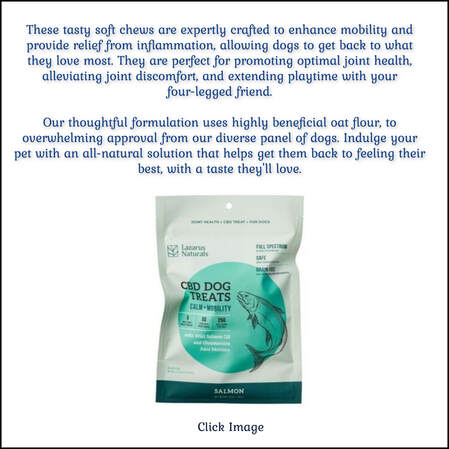
By Natural Dog Health Remedies
Milk thistle is well known as a "liver herb" both for humans and pets.
Milk thistle contains a flavonoid compound called "silymarin" which itself is a combination of several other active compounds.
Extensive studies around the world have found that silymarin is safe and effective in treating a variety of liver diseases and other conditions, from kidney disease to mushroom or lead poisoning. It works by displacing toxins trying to bind to the liver and by causing the liver to regenerate more quickly.
Milk thistle is well known as a "liver herb" both for humans and pets.
Milk thistle contains a flavonoid compound called "silymarin" which itself is a combination of several other active compounds.
Extensive studies around the world have found that silymarin is safe and effective in treating a variety of liver diseases and other conditions, from kidney disease to mushroom or lead poisoning. It works by displacing toxins trying to bind to the liver and by causing the liver to regenerate more quickly.
|
In addition, silymarin can work as an antioxidant for the liver - it scavenges free radicals and stabilize liver cell membranes. It also stimulates the production of new liver cells.
Holistic veterinarians (and some conventional ones as well) have long been using milk thistle to treat dog liver disease. |
It has an excellent safety record and no known adverse drug interactions, although taking too much of the herb at a time can sometimes cause an upset stomach, gas, or mild diarrhea.
Common Uses of Milk Thistle on Dogs
The silymarin constituent in milk thistle has numerous functions and can be used to treat a variety of dog health problems:
Liver Protection
Silymarin and other related compounds support and protect the liver. Specifically, they strengthen the liver cell resistance to harmful toxins and stimulate new cell reproduction. As such, milk thistle is very effective in treating dogs with liver problems and related diseases, such as:
(One liver disease that milk thistle is not effective in treating is advanced liver cirrhosis.)
The silymarin constituent in milk thistle has numerous functions and can be used to treat a variety of dog health problems:
Liver Protection
Silymarin and other related compounds support and protect the liver. Specifically, they strengthen the liver cell resistance to harmful toxins and stimulate new cell reproduction. As such, milk thistle is very effective in treating dogs with liver problems and related diseases, such as:
- Chronic inflammatory liver disorders (e.g. hepatitis)
- Liver tumors (may help slow down the tumor growth)
- Skin problems secondary to liver disease
- Leptospirosis
- Pancreatitis
- Fatty liver
(One liver disease that milk thistle is not effective in treating is advanced liver cirrhosis.)
Detoxification
Because of the powerful antioxidant properties of the silymarin compounds, milk thistle is an ideal herb for detoxification. In particular, dogs who have been on allopathic medications, dewormers, chemotherapy, vaccinations, and heartworm medications can benefit from milk thistle supplementation. It can also be given to dogs who are recovering from parvovirus.
Recommended Dosages
The standard dosage of milk thistle extract is based on a silymarin content of around 80 percent. Most supplements of milk thistle contain about 100 to 200 mg of the herb.
As mentioned above, milk thistle is very safe on dogs. For dogs with advanced liver disease, a dosage as high as 200 mg per 10 pounds of body weight is possible. For other liver problems or health conditions, 75 to 100 mg per 10 pounds of body weight per day is sufficient to see results.
If milk thistle causes upset stomach, gas, or mild diarrhea in your dogs, simply reduce the dosage.
Because of the powerful antioxidant properties of the silymarin compounds, milk thistle is an ideal herb for detoxification. In particular, dogs who have been on allopathic medications, dewormers, chemotherapy, vaccinations, and heartworm medications can benefit from milk thistle supplementation. It can also be given to dogs who are recovering from parvovirus.
Recommended Dosages
The standard dosage of milk thistle extract is based on a silymarin content of around 80 percent. Most supplements of milk thistle contain about 100 to 200 mg of the herb.
As mentioned above, milk thistle is very safe on dogs. For dogs with advanced liver disease, a dosage as high as 200 mg per 10 pounds of body weight is possible. For other liver problems or health conditions, 75 to 100 mg per 10 pounds of body weight per day is sufficient to see results.
If milk thistle causes upset stomach, gas, or mild diarrhea in your dogs, simply reduce the dosage.
Milk Thistle for Dogs - Precautions
Despite the fact that milk thistle is hailed as "the" herb for the liver, it should NOT be given to healthy dogs as a daily supplement. Some studies show that long-term use of very high doses of milk thistle will eventually suppress liver function.
Milk thistle should therefore be used only as a medicinal herb for the treatment of liver disorders and other health problems as mentioned above.
Additionally, silymarin is not recommended for use in pregnant women. It is probably a good idea not to use milk thistle in pregnant dogs until more information has become available.
Despite the fact that milk thistle is hailed as "the" herb for the liver, it should NOT be given to healthy dogs as a daily supplement. Some studies show that long-term use of very high doses of milk thistle will eventually suppress liver function.
Milk thistle should therefore be used only as a medicinal herb for the treatment of liver disorders and other health problems as mentioned above.
Additionally, silymarin is not recommended for use in pregnant women. It is probably a good idea not to use milk thistle in pregnant dogs until more information has become available.
















